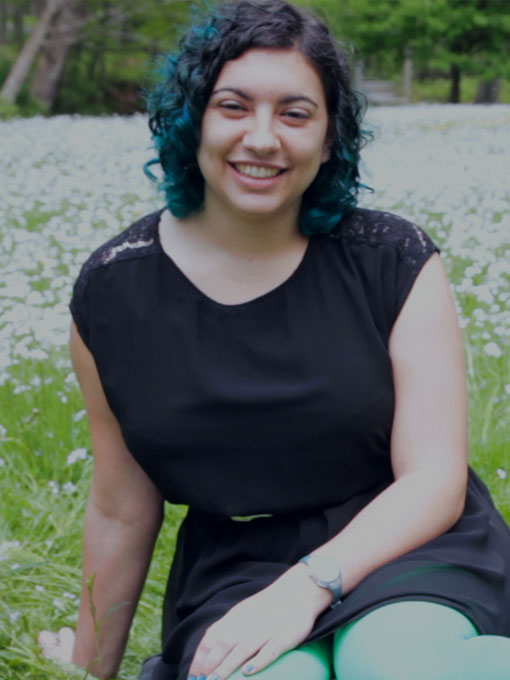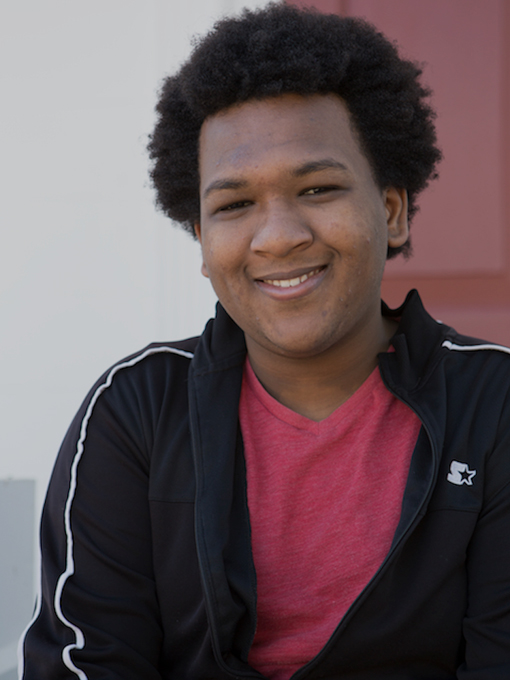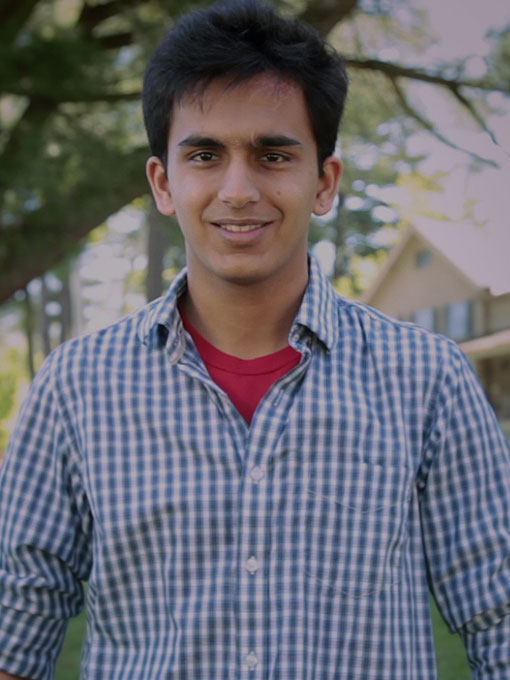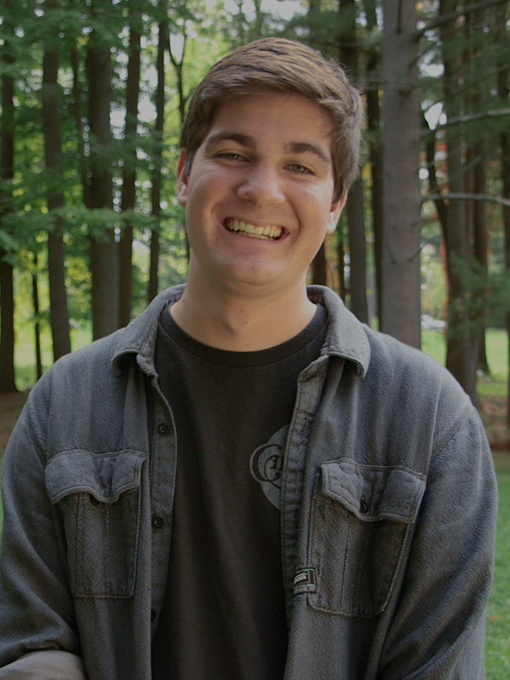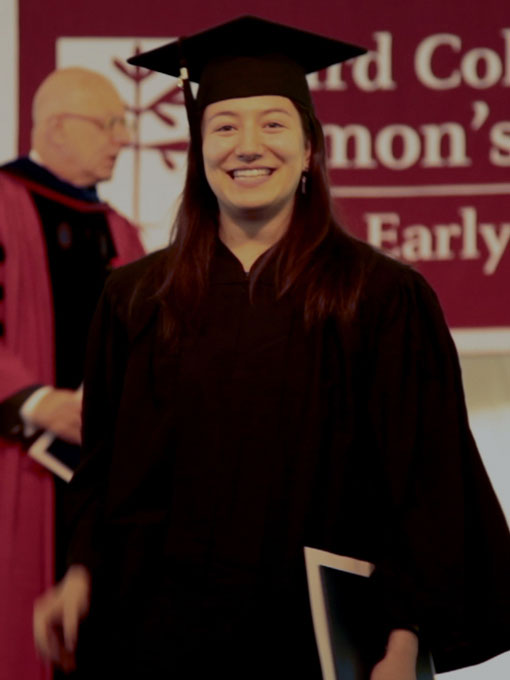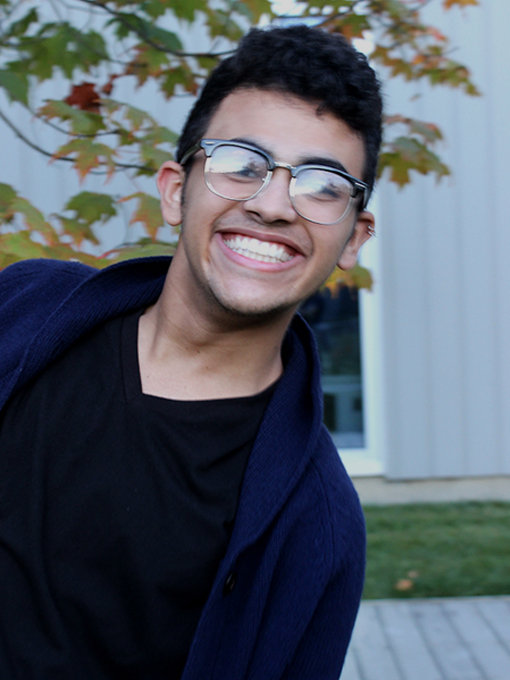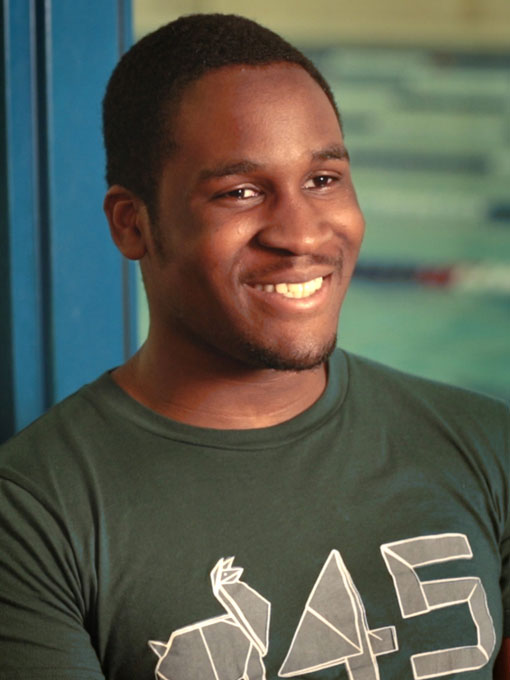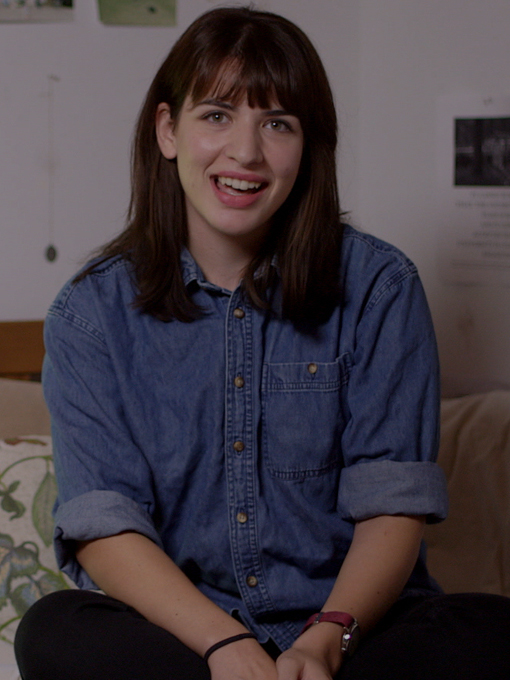I Discovered Myself and My Passion for Food Justice Here
Mo Constantine ’14
Food Studies: Social & Environmental Justice
Mo Constantine discovered his greatest passion at Bard College at Simon’s Rock: food justice. Now it’s something he’ll be focused on the rest of his life. The ability to self-design his own concentration and the support offered by his professors made it possible.
Mo concentrated in Electronic Media and the Arts, as well as Food Studies: Social & Environmental Justice. After receiving his BA, he stayed the summer to work as an admissions counselor, and thanks to a connection made at Simon’s Rock’s annual ThinkFOOD Conference, is also working with Braise Worthy, a local food startup offering vegan dishes and meat-based alternatives. As Mo gets ready to head off to graduate school, he shares why Simon’s Rock will always be his home and why he wants to see other students find their home here too.
Why did you choose Simon’s Rock?
I chose to come to Simon's Rock as a student for the same reasons that most students come here: I was bored in high school, wanted more academic challenge, and didn’t feel like I fit in among the other students. The community here has provided me with everything I knew that I was looking for — other people who are really enthusiastic about learning and passionate about their work — and everything that I didn’t yet know I needed when I was applying as a 16-year-old: the freedom to explore my academic interests and my personal identities, to be wrong and have that be OK, and to have my compassion and my work ethic valued above my intelligence.
How did you decide on your concentration?
Looking back, it seems obvious that I would major in food justice. I grew up in the second largest agricultural producing region in the United States that is also simultaneously the most food insecure metropolitan area in the country. But it took me two years here to figure out that that’s where my passions lie, mostly because I hadn’t heard of “food justice” before. Because Simon’s Rock lets you create your own concentration — and with the support of the wonderful Center for Food Studies Director Maryann Tebben and Professor Chris Coggins — I was able to create the subject and combine sociology with geography with environmental studies, philosophy, animal rights, and even film. My junior year, I spent a semester studying with the Food & Sustainability Studies Program at the Umbra Institute in Perugia, Italy.
I also majored in Electronic Media and the Arts because I love film editing. Film has always been a hobby. It’s been a helpful skill in just about every job I’ve had; there’s always a need for videos. I have made some films about sustainability and animal rights in my time here for class projects, and have been making videos on current students for the Marketing and Communications and Admissions offices.
My senior project was “Food as a Social Justice Issue: The Food Justice Movement in the United States.” Instead of analyzing the issues (food deserts, food insecurity, racism in the food system), I focused on the different solutions that have been put in place — from the organic movement to the Black Panther Party’s Free Breakfast for Children program. I analyzed their strategies, successes, and failures, and talked about the importance of imagination when it comes to big issues like these. The whole thesis was framed within an argument that agriculture itself is unsustainable and the long-term goal should be to return to hunting and gathering.
What impact, big or small, did you have on Simon’s Rock?
I started Green Monday and that was really a four-year endeavor. I did a lot of activism on and off campus (leafleting, hanging up posters, organizing lectures, running campaigns, hosting food tastings, hosting workshops on animal rights, and film screenings), and slowly the campus culture did change. My friend and I waited until we felt like enough students would be receptive to the idea of Green Monday (basically meatless Monday) and then started sending around a petition. We knocked on almost every door. By the end of our last fall semester we had over half the school’s signatures, so the dining hall was willing to implement Green Monday. That was a huge success for us.
How has it been working with the Office of Admissions?
It’s been an amazing experience to be an admissions counselor the summer after graduating. Being a student representative the last four years was a highlight of my time at Simon’s Rock, and it was an honor when they asked if I would be a counselor for the summer. Seeing everything from the other side and helping to admit new students is a nice way to wrap up my time here. I always knew that Simon’s Rock students were exceptional, but the number of really extraordinary applications we get from amazing people blows my mind. As a student rep, when meeting with prospective families and students, I always tried to convey how unique Simon’s Rock is: the support (academic and social) offered here, the passion among the students and faculty, the ability to study exactly what you want — these things aren’t easily found elsewhere. Simon’s Rock has provided a work environment that is just as welcoming as the school environment, and even though I’ll be leaving this fall, I’m sure it won’t be long until I’m back.
What are your postgraduate plans?
I’ll be pursuing a master’s degree in Critical Sociology at Brock University in Ontario, Canada. The food studies field is still up and coming, so there weren’t many food studies programs out there. Several schools said they weren’t used to applicants studying this in undergrad, which made Maryann pretty happy — that our tiny school in the woods was beating out the big grad schools in academic areas like food studies. I looked into sociology and geography instead, which might let me take my research in the direction I want, and Brock University has a Critical Animal Studies focus within their sociology program. I applied and wrote my essay on intersectional animal rights, a topic I want to study more. Turns out there is a professor there who is studying exactly that. I also hope to get my PhD.
What has the Simon’s Rock community meant to you?
I’ve never been in a place more accepting of differences. I can specifically speak to the LGBTQ+ community here. I am transgender and come from a very conservative, religious, Trump-supporting town in California. I’m glad I grew up there because I developed the ability to get along with people I disagree with, but coming to Simon’s Rock is what finally gave me the room to explore who I am, and the confidence to accept myself so that I can devote my attention to issues like food justice without being weighed down by insecurities. From health services to student life to my professors, everybody made me feel welcome and supported, and the pressure to conform just melted off.
What makes Simon’s Rock a welcoming place for LGBTQ folks?
The whole idea behind Simon’s Rock is that it’s different — it provides a different educational path for students with different educational needs, and a large part of those different educational needs comes from nonstop questioning of everything. The students who come here, who this school was built for, are the students who were not content sitting in their classrooms in high school being lectured at, taught material they already know, told not to raise their hand or challenge what is being said. Right off the bat, by taking those students and giving them an academic environment better suited for them, you’re going to be creating a place that doesn’t conform to ideas about what is right and what is normal. In the way that LGBTQ folks are always having to pave their own way forward and carve out spaces for themselves in a society that looks at us as different, the Simon’s Rock community is built and maintained by those who are doing the same type of work. I don’t think it’s a coincidence that so many of our students, staff, and faculty identify within the LGBTQ community.
Leaving is going to be difficult because I’m so happy here, but I’m not only leaving with the skills I need to be happy and successful, but also knowledge of what type of community I want to end up in or create.
